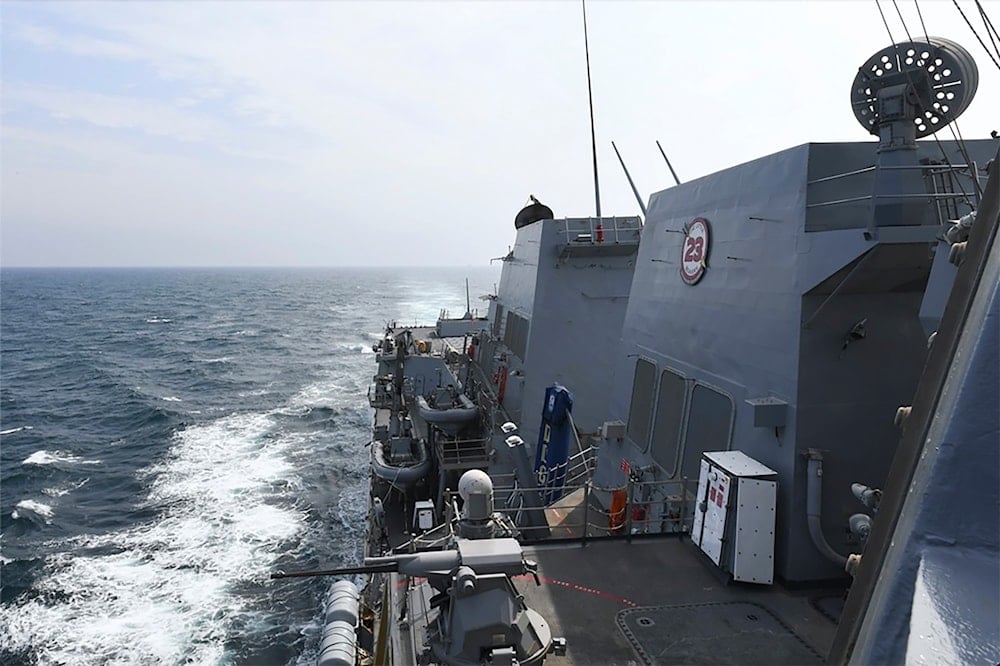Taiwan condemns China’s new air route over strait, warns of escalation
Beijing’s newly designated air route over the Taiwan Strait has drawn criticism from Taipei, though Chinese officials maintain it is a routine adjustment within sovereign airspace.
-

In this photo provided by the US Navy, the Arleigh Burke-class guided-missile destroyer USS Halsey (DDG 97) conducts routine underway operations while transiting through the Taiwan Strait, on Wednesday, May 8, 2024 (Mass Communication Specialist 3rd class Ismael Martinez/U.S. Navy via AP)
Taiwan on Sunday issued a strong rebuke of Beijing’s decision to open a new air route across the Taiwan Strait, warning that it perceives the move as a direct threat to cross-strait stability and a provocation likely to further inflame tensions across the Asia-Pacific region.
The criticism came from Taiwan’s Mainland Affairs Council (MAC), the agency responsible for managing relations with Beijing. In a sharply worded statement, the MAC accused China of unilaterally altering the status quo by launching a new west-to-east air corridor over one of the world’s most geopolitically sensitive airspaces.
China has shown "complete disregard for the consensus of both sides and Taiwan’s public opinion,” the Council stated, warning that unilateral actions are fueling cross-strait and regional unease.
China cites air traffic; Taiwan dismisses the claim
The new flight path, announced and activated by Beijing, is the latest in a series of airspace adjustments over the Taiwan Strait. According to Chen Binhua, spokesperson for China’s Taiwan Affairs Office, the corridor is intended to “alleviate pressure caused by the increase of flights” and streamline flight routes across the strait.
However, Taiwanese authorities rejected that explanation, denying there had been an increase in air traffic.
Taipei also stated that this is the third time Beijing has altered air routes in the region without bilateral dialogue. In January 2024, China reportedly adjusted the north-to-south M503 route, followed by the creation of two lateral paths, now capped off by the current west-to-east corridor.
Regional stability at risk
“The current cross-strait and Asia-Pacific situation is complex,” the MAC warned, adding that “the Mainland’s unilateral actions will escalate regional tensions, which no party wishes to see.”
Beijing maintains that Taiwan is a part of its territory, and it has not ruled out the use of force to achieve reunification. Taiwan, meanwhile, continues to assert its autonomy, bolstered by growing US meddling and increased engagement with Western partners.

 2 Min Read
2 Min Read










